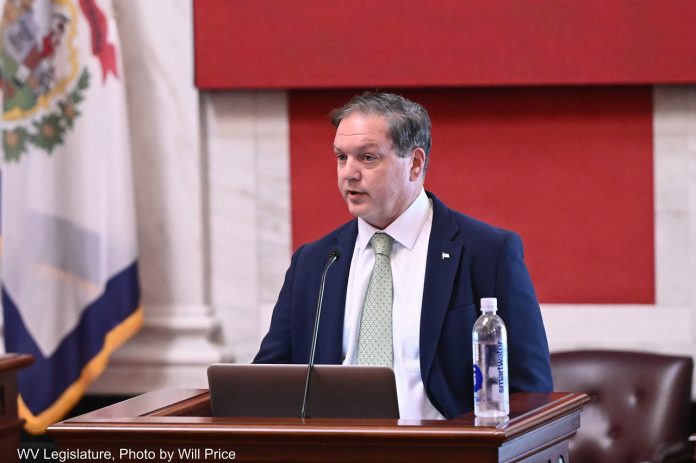Brian Cunningham, director of the Public Employee’s Insurance Agency, described the financial pressures his agency is facing during interim meetings on Monday morning.
He told lawmakers those pressures are likely to continue in coming years.
“I want to make sure everybody understands this is PEIA projecting premium increases going forward through 2029,” he said, as he showed lawmakers a chart of PEIA’s five-year projections.
Under a plan that would equal about $113 million for the 2026 fiscal year, PEIA has proposed increasing its premiums by 14 percent for state employees and by 16 percent for local government employees.
PEIA retirees’ premiums would go up by 12 percent. Both state and county employees would see an increase of 40 percent in their out-of-pocket maximum as well as increases in co-pays. A monthly spousal surcharge for state employees would more than double, from $147 to $350.
Cunningham suggested those increases are not out of line with what other states and other plans are going through as medical and drug expenses have outpaced the money available.
PEIA’s finance board began a series of public hearings across West Virginia regarding the proposed changes last week. The public hearings continue Tuesday in Martinsburg and conclude in Charleston on Nov. 21. The finance board is expected to vote on the proposal during its meeting Dec. 5.
As a possible solution to help stabilize PEIA’s finances going forward, Cunningham suggested lawmakers consider clarifying legislation that requires providers be reimbursed 110 percent of what Medicare would reimburse them. That law, which went into effect in July 2023, was intended to target reimbursement for inpatient hospitals that were having trouble financially due to low reimbursement rates. However, it’s been interpreted to include all health care providers.
Cunningham said that due to that law, PEIA is overpaying compared to national averages for some services. He suggested lawmakers could clarify which services are reimbursed at the 110 percent rate with a more targeted approach.
Cunningham also told lawmakers that GLP-1 drugs, which treat obesity and diabetes, have been a driver of the increased costs. The drugs accounted for roughly 20 percent of PEIA’s overall net drug spend in fiscal year 2024, according to Cunningham.
Cunningham suggested lawmakers could clarify the rules around a “gold card provider” program, that allows doctors to prescribe without prior authorization from PEIA. GLP-1 drugs require a diagnosis of type 2 diabetes in order for PEIA to pay for them, but without the prior authorization, there’s no way for the agency to enforce that rule.
Lawmakers seemed open to the suggested changes and planned to discuss potential legislation in more detail at the next meeting in December.

